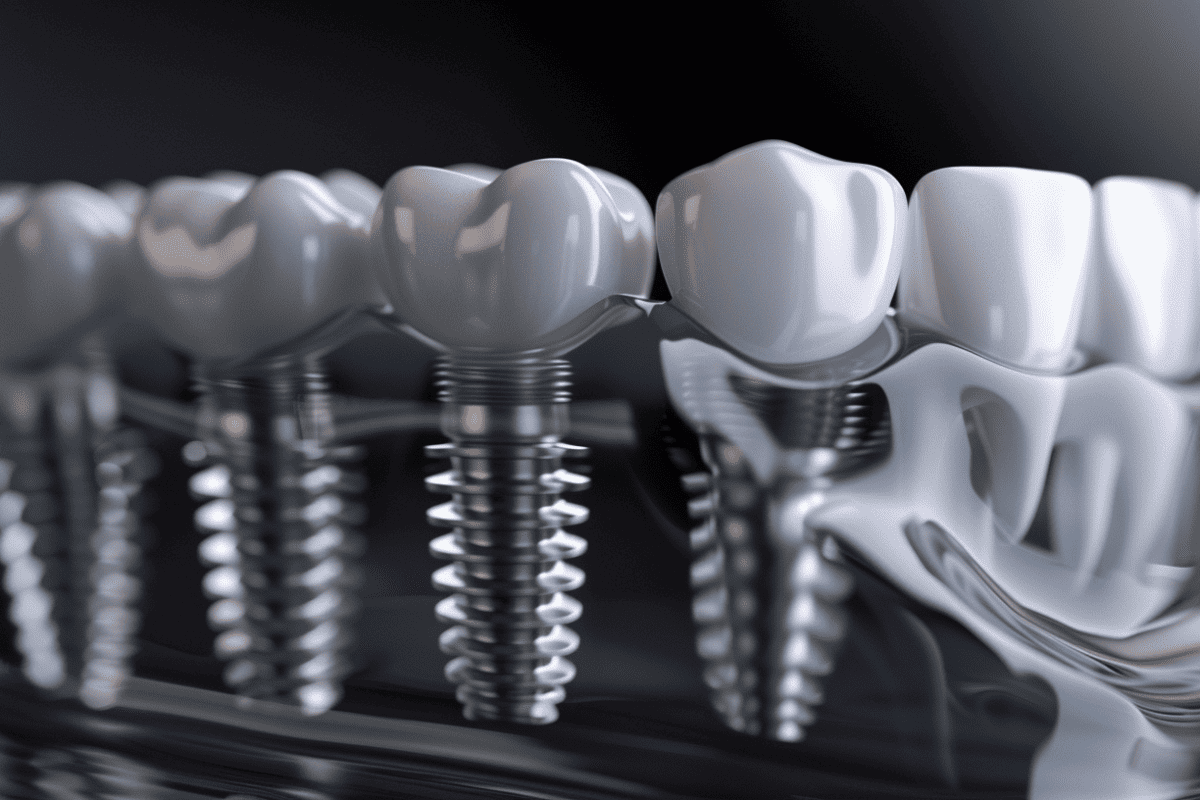Dental implants have completely changed the field of dentistry by providing a long-lasting and efficient replacement for lost teeth. As an integral part of modern dental care, understanding the essentials of dental implants is crucial for those considering this transformative procedure. In this comprehensive guide, we’ll delve into the intricacies of dental implants, shedding light on what you need to know to make informed decisions about your oral health.
Understanding Dental Implants
1. Definition:
- Artificial tooth roots composed of biocompatible materials, usually titanium, are called dental implants. Surgically implanted into the jawbone, they are a stable foundation for replacement teeth.
2. Components:
- Implant Fixture: The implant fixture is the titanium post inserted into the jawbone, acting as the artificial tooth’s root.
- Abutment: Placed on the implant, the abutment connects the fixture to the crown or artificial tooth.
- Crown: The visible part of the implant, resembling a natural tooth, is the crown. It is custom-made to match the patient’s existing teeth.
3. Osseointegration:
- Osteointegration, a biological process by which the implant merges with the surrounding jawbone to provide stability and support, is essential to the functioning of dental implants.
4. Types of Dental Implants:
- Endosteal Implants: Surgically placed directly into the jawbone, these are the most common types of dental implants.
- Subperiosteal Implants: These are an option for people who do not have enough natural bone. They are placed on or above the jawbone but below the gum line.
Candidates for Dental Implants
1. Good Oral Health:
- Candidates should have a strong foundation of oral health, including healthy gums and adequate jawbone density.
2. Stable Overall Health:
- General health is crucial, and candidates should be free from conditions that may affect healing, such as uncontrolled diabetes or autoimmune disorders.
3. Non-Smokers:
- Smoking can delay healing and raise the possibility of implant failure. Non-smokers are generally better candidates.
4. Commitment to Oral Care:
- In order to guarantee the durability of the dental implants, candidates must pledge to uphold good oral hygiene and routine dental examinations.
Advantages of Dental Implants
1. Natural Appearance:
- As a seamless and visually beautiful alternative, dental implants closely mimic real teeth.
2. Durability and Longevity:
- Under the right circumstances, dental implants can provide a strong, long-lasting tooth replacement.
3. Preservation of Jawbone:
- In order to stop bone loss, which frequently happens when teeth are lost, implants stimulate the jawbone.
4. Improved Chewing Function:
- Dental implants restore full chewing function, allowing patients to enjoy a varied and nutritious diet.
5. Enhanced Speech:
- Unlike removable dental appliances, implants don’t impact speech, allowing for clear and natural communication.
The Dental Implant Procedure
1. Initial Consultation:
- To evaluate the patient’s dental health and establish implant appropriateness, a comprehensive examination is conducted at the start of the process, which includes taking impressions and X-rays.
2. Surgical Placement:
- During the surgical procedure, the implant fixture is placed into the jawbone. The healing period, during which osseointegration occurs, follows.
3. Abutment Placement:
- Once osseointegration is complete, an abutment is attached to the implant fixture. This serves as the connector for the final restoration.
4. Crown Placement:
- The dental implant procedure is completed when the custom-made crown is fastened to the abutment.
Recovery and Aftercare
1. Healing Period:
- Patients undergo a healing period after the surgical placement of the implant, allowing for osseointegration to occur. This period varies but typically ranges from a few weeks to a few months.
2. Oral Hygiene:
- The lifespan of dental implants is contingent upon maintaining oral hygiene and overall health. It’s essential to regularly brush, floss, and get your teeth professionally cleaned.
3. Follow-Up Appointments:
- Regular follow-up appointments with the dentist are scheduled to monitor the healing process and ensure the stability of the implants.
4. Lifestyle Considerations:
- Patients could receive advice on how to maintain the health of their implants by abstaining from certain behaviors, such smoking and binge drinking.
Potential Risks and Complications
1. Infection:
- Infection at the implant site is a potential risk. Proper oral hygiene and adherence to post-surgical care instructions can mitigate this risk.
2. Implant Failure:
- While rare, implant failure can occur. Factors such as poor oral hygiene, smoking, or underlying health conditions may contribute.
3. Nerve Damage:
- Nerve damage during the implant placement is a rare but possible complication. Experienced and skilled dental professionals minimize this risk.
Dental Implants Seattle: Finding the Right Provider
1. Credentials and Experience:
- Choose a dental professional with the necessary credentials and experience in implant dentistry.
2. Patient Reviews:
- Read patient reviews and testimonials to gauge the experiences of others who have undergone dental implant procedures.
3. Technology and Facilities:
- Assess the technology and facilities at the dental practice, ensuring they utilize modern techniques for implant placement.
4. Communication and Consultation:
- Effective communication with the dental team and a thorough initial consultation are essential for a successful implant journey.
Conclusion
Dental implants have transformed the lives of countless individuals, providing a permanent solution for missing teeth and restoring confidence in smiles. Understanding the intricacies of the implant process, from candidacy to aftercare, empowers individuals to make informed decisions about their oral health.
For those considering dental implants Seattle, finding a reputable and experienced provider is paramount. By prioritizing oral health, committing to aftercare, and choosing a skilled dental professional, individuals can embark on a journey toward a restored and radiant smile with confidence.
This is a sponsored post
Digital Health Buzz!
Digital Health Buzz! aims to be the destination of choice when it comes to what’s happening in the digital health world. We are not about news and views, but informative articles and thoughts to apply in your business.


